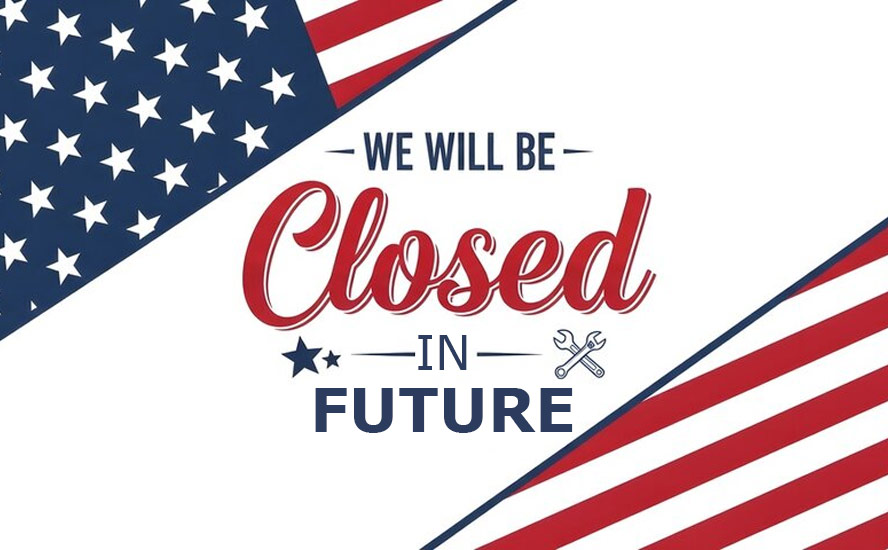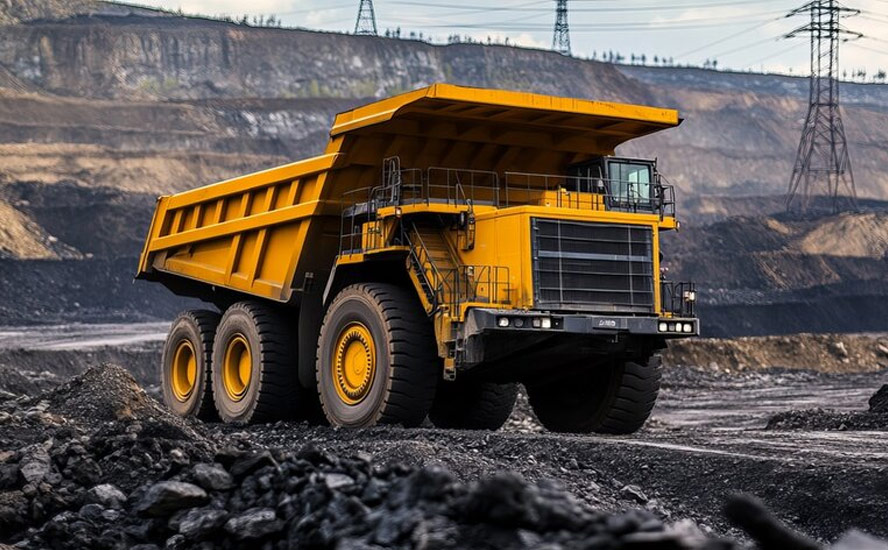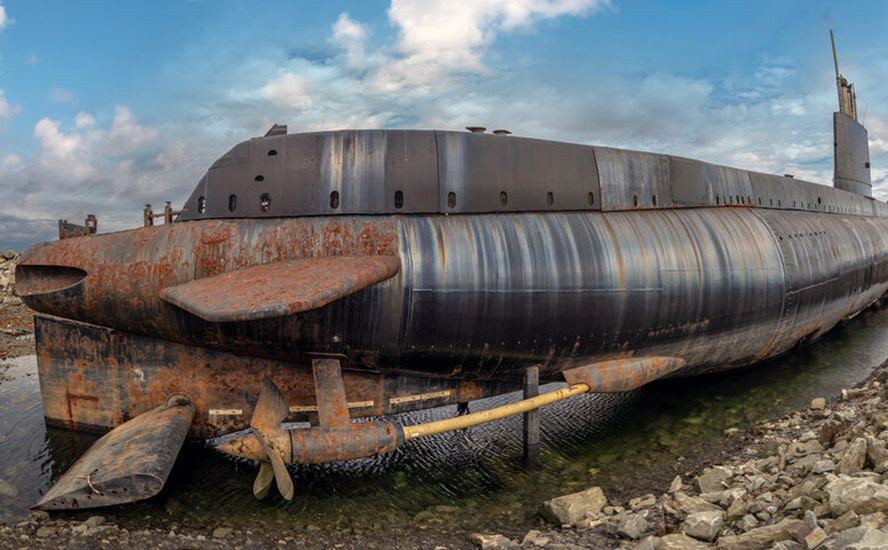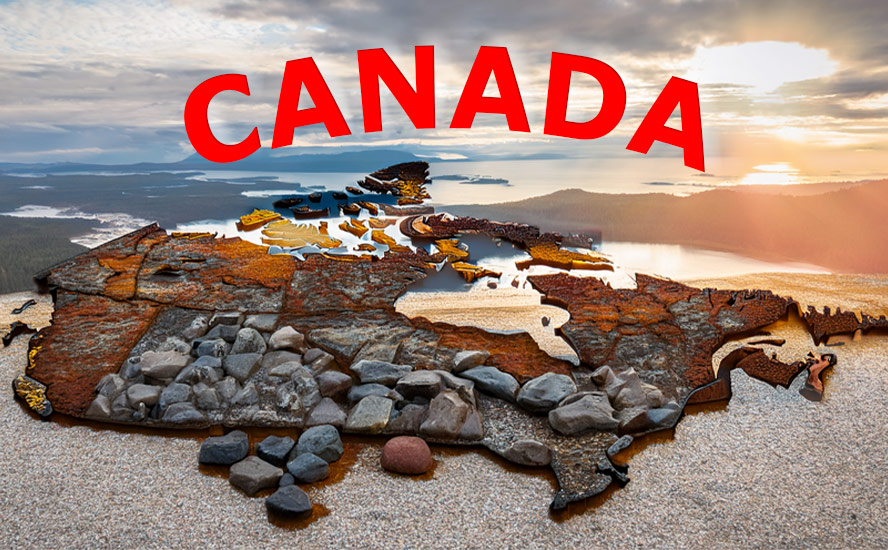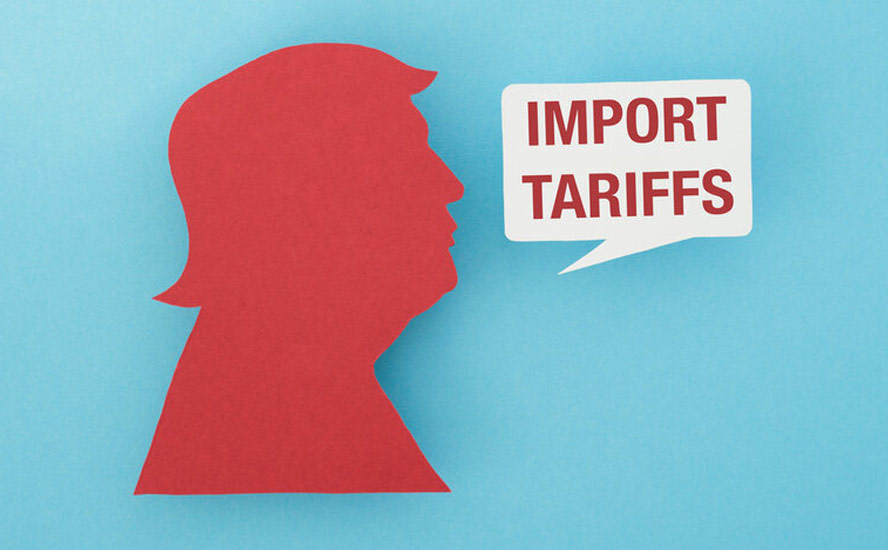Trudeau puts Quebec ahead of Canada to protect himself and SNC-Lavalin

2019.03.28
Canadian Prime Minister Justin Trudeau is no chip off the old block when it comes to federalism.
Whereas his father Pierre staked all his political capital on putting Quebec, the spoilt child of confederation, on an equal but better footing with the other provinces, Justin sided with SNC-Lavalin in ensuring that Quebec’s business champion avoided prosecution to give his Liberals (and himself), the best shot at a second majority government.
While their approach to Quebec might be different make no mistake father and son Trudeau are cut from the same cloth regarding their favoritism of Eastern Canada over the West, particularly with respect to body slamming Alberta and resource extraction.
That’s the way it looks to Ahead of the Herd after reviewing the facts behind the SNC-Lavalin mess that has muddied Justin Trudeau’s squeaky-clean image.
What is this about?
For those dazed and confused from the onslaught of media coverage, here is a recap of the SNC-Lavalin affair:
- On Feb. 7 national media reported that the former Justice Minister, Jody Wilson-Raybould, may have faced pressure from staff in the Prime Minister’s Office, regarding a corruption case against SNC-Lavalin.
- Confidential sources told the Globe and Mail that the PMO tried to avoid a trial last fall by reaching an out-of-court settlement with SNC. Wilson-Raybouldwouldn’t go along with the plan, so she was ‘demoted’ (not my words) from Justice to Veterans Affairs in a Cabinet shuffle.
- The prime minister denied he had “directed” Wilson-Raybould to make any decisions, but later acknowledged they had discussed SNC, which stands accused of bribing Libyan officials to win construction contracts.
- Wilson-Raybould quit on Feb. 12 as Veterans Affairs minister but couldn’t tell her side of the SNC story because she was bound by solicitor-client privilege. Trudeau later waived that privilege, setting the table for Wilson-Raybould, now an ordinary MP representing Vancouver, to testify at the House justice committee, conducting an inquiry into the SNC issue.
- In three hours of testimony, Wilson-Raybould pretty much threw Trudeau and his inner circle under the bus. She detailed conversations and emails between her, her staff, the PMO and other officials, the gist of which was that she faced “inappropriate” pressure and “veiled threats” from the PMO to save SNC from a trial that could damage the company and the Liberals’ chances of re-election in Quebec.
- She said she believes she was fired (or in political circles, “shuffled”) from her post as Justice Minister for refusing to pursue a deferred prosecution agreement that would have stopped SNC-Lavalin from being prosecuted o n charges of bribing public officials to get contracts in Libya.
- In a now-infamous media scrum, Trudeau said he “completely disagreed” with Wilson-Raybould’s version of events, without giving an alternative explanation of what happened. The Conservative opposition called for his resignation or face a public inquiry.
- Of course he didn’t resign, but two of his Cabinet ministers did, along with his principal secretary, Gerald Butts, and the clerk of the Privy Council.
- An Opposition motion to launch an ethics committee probe into the SNC-Lavalin affair was voted down by Liberal MPs. Do they have something to hide? Nah…
Why should we care?
Because it is highly unusual, and definitely unethical, for a prime minister and his key people to pressure the attorney general to interfere in legal proceedings. (Wilson-Raybould held the combined roles of justice minister and attorney general. The former is supposed to draft legislation for the Justice Department while the latter is to provide legal advice to the government and represent it in legal proceedings. Some say the two roles should be separate)
It kinda reminds me of Trump, who is also accused of tampering with the wheels of justice. (While the Mueller report couldn’t find any collusion between the Trump campaign and Russia, it was less clear on whether the president tried to block the investigation into electoral fraud – by firing former FBI director James Comey, for example)
In interfering with Wilson-Raybould’s judgment to prosecute SNC, the PMO was putting itself above the law for political gain. ie. keeping SNC-Lavalin out of trouble and to preserve jobs at its head office in Montreal – the company had threatened to move out of Canada if it didn’t get a deferred prosecution – essentially an agreement between the government and the company that charges will be dropped if it fulfills certain requirements, like a fine or more oversight.
Did Trudeau do anything illegal? Probably not. The National Post put that question to legal experts and found that it’s not clear-cut. An average person can go to jail if they attempt “in any manner to obstruct, pervert or defeat the course of justice.” But Trudeau is given a lot of leeway as prime minister. “The hitch… is that everything Trudeau is alleged to have done could also be characterized as the normal execution of his prime ministerial duties,” including firing anyone he pleases, concludes the newspaper. There is also no trail that leads to obstruction of justice, such as bribing a judge, threatening a witness or evidence showing that Trudeau told Wilson-Raybould she must block a prosecution or she’ll be fired.
That pushes the whole affair into the gray area of “politics”, meaning it’s up to voters to decide whether, from what we know, it was acceptable, and whether there will be repercussions in the upcoming federal election.
Before I leave this section, Macleans Magazine reprinted some key excerpts of Wilson-Raybould’s testimony. They are worth showing here for what looks like a very deliberate attempt to let SNC-Lavalin off the hook. The good bits are in bold:
Sept. 6, 2018: Ben Chin, chief of staff to Finance Minister Bill Morneau, to Jessica Prince, Wilson-Raybould’s chief of staff
He wanted to talk about SNC and what we could do, if anything, to address this. He said to her that if they don’t get a DPA [deferred prosecution agreement], they will leave Montreal, and it’s the Quebec election right now, so we can’t have that happen. He said that they have a big meeting coming up on Tuesday and that this bad news may go public.
Sept. 17: Prime Minister Justin Trudeau and Clerk of the Privy Council Michael Wernick, to Wilson-Raybould
The PM again cited potential loss of jobs and SNC moving. Then to my surprise—the Clerk started to make the case for the need to have a DPA—he said ‘there is a board meeting on Thursday (Sept 20) with stock holders’ … ‘they will likely be moving to London if this happens’… ‘and there is an election in Quebec soon’…
At that point the PM jumped in stressing that there is an election in Quebec and that ‘and I am an MP in Quebec—the member for Papineau.’
I was quite taken aback. My response—and I remember this vividly—was to ask the PM a direct question while looking him in the eye—I asked: ‘Are you politically interfering with my role / my decision as the AG? I would strongly advise against it.’ The Prime Minister said, ‘No, no, no—we just need to find a solution.’
It’s all about Quebec
So why did Trudeau and his team go to such great lengths to stop SNC-Lavalin from having to stand up for themselves in court? Because SNC is extremely powerful in Quebec, and because la belle province is notoriously hard to please.
SNC-Lavalin provides engineering, procurement and construction services, employing 50,000 worldwide, including about 9,000 in Canada and 3,400 in Quebec. So it’s a big employer, but not the biggest in the country by any stretch – SNC ranks 43rd on the list of top 50 Canadian employers.
But the company’s domination of engineering/construction in Canada and its lucrative contracts abroad has made SNC something of a Quebec champion.
Among its homegrown success stories are the James Bay hydro project, the Canada Line in Vancouver and Montreal’s Olympic Stadium. The firm is currently building the Champlain Bridge across the St. Lawrence River.
Despite its failures including a fistful of corruption cases (more on that below), losses on oil and gas investments and the cancelation of a $260-million contractby Chilean copper miner Codelco, SNC is deeply loved and appreciated – much like Bombardier which accepted over C$1.6 billion in government bailouts before handing over (for no money) a majority stake of the company to Airbus which shifted production to the US.
Beyond the odd public admiration, there’s the political implications. As seen in Jody Wilson-Raybould’s testimony above, Trudeau and his cabal were very worried about it. They didn’t want to be blamed for SNC-Lavalin pulling up stakes and leaving Quebec, which SNC might have to do – if found guilty of corruption in Libya they could be banned from bidding on federal contracts for 10 years.
There are two other important political aspects to this: the need to please the Quebec provincial government and the need to get re-elected.
Recall that last October, the Coalition Avenir Quebec (CAQ) won the provincial election, ending nearly 50 years of alternating rule by the Liberals and the Parti Quebecois. Gone was Trudeau’s alliance with the federalist Liberals who governed the province since 2003 with the exception of two years from 2012-14 (PQ). He needed an ally in Quebec going into the 2019 election.
Enter Quebec’s popular new nationalist premier, Francois Legault, who despite beating the PQ, is a former separatist. Conscious of preventing a surge in separatism, and wanting to be popular in vote-rich Quebec, Trudeau reportedly acquiesced to his demands. According to ipolitics, these included: more power over immigration; handing over administration of federal income tax to Quebec; and $300-million for the costs of asylum seekers.
CBC added that Legault spoke to Trudeau and pushed for a speedy resolution to SNC’s legal troubles.
Among Quebec’s worries over SNC, is the fact that the province’s pension fund manager, the Caisse de dépôt et placement du Québec – is the biggest SNC shareholder. With its shares trading at six-year lows after federal prosecutors announced in October they weren’t interested in deferring prosecution, the last thing the Quebec government wanted was to see SNC-Lavalin tank. In 2018 the $11.8 billion-portfolio Caisse posted just a 4.2% return, the lowest since 2011.
Even worse would be if SNC were to leave Quebec, like Alcan and Rona did when they were bought out by foreign competitors. So Legault “had a word” with Trudeau.
And the prime minister would oblige. After all, he needs Quebec as much as Quebec needs SNC-Lavalin. The province holds 78 of 170 seats required for a majority government. The Liberals currently have 40 Quebec MPs.

A corrupt company
Defenders of SNC-Lavalin say those who think the company should be charged for corruption in Libya are naive. Everyone knows that doing business in what used to be called the third world involves bribes. But it’s not just Libya. The company was banned for 10 years from World Bank contracts due to scandals in Bangladesh and Cambodia.
SNC has been playing fast and loose for years, with a lot of the corruption cases occurring right here in Canada. The worst involved the McGill University Health Centre. Three SNC employees were charged with offering bribes to get the $1.3 billion contract, a case that was eventually called “the biggest fraud and corruption investigation in Canadian history” according to the Quebec police.
In Libya the company and two of its subsidiaries were charged by the RCMP with bribing Libyan officials with $48 million over 10 years, and defrauding organizations there of $130 million.
SNC wasn’t shy about greasing a few palms to get what it wanted in North Africa. Among the more licentious of stories, were receipts gathered during an investigation of an SNC executive, that showed $30,000 paid to Moammar Ghadafi’s son Saadi, for sexual services during a visit to Canada. The money was a reward for Saadi’s help in securing billions worth of contracts.
Then there was the election finance fraud. Normand Morin, SNC-Lavalin’s former VP, plead guilty to violating Canada’s election financing laws. CBC reports that Morin used SNC employees to funnel over $117,000 between 2004 and 2011, in order to get around restrictions on companies donating to federal parties. The company would then reimburse the workers by making up personal expenses or bonuses.
More rot keeps getting exposed. The RCMP is apparently investigating whether SNC’s current executives knew about bribes paid in the early 2000s to secure a $127-billion contract to refurbish the Jacques Cartier Bridge in Montreal.
A big nothing burger
Not only is Trudeau and his inner circle protecting a company that appears to do business like Al Capone, one has to question whether it was worth the risk. An editorial in the Toronto Sun looks at whether the Liberals overestimated the impact of throwing SNC to the dogs.
One reason the company is 43rd on the list of Canada’s largest employers is that relatively few work here. SNC has more employees in the UK than Canada. In 2017 31% of its revenues came from Canada, less than half of the 66% brought in four years earlier. Of this, only half comes from federal government contracts. SNC often lorded the threat of moving out of Canada over government officials, but what few know is that the company must keep its HQ in Montreal until at least 2024 under a loan agreement with the Caisse, the Toronto Sun reported, concluding:
“All of which suggests Trudeau may be significantly overstating the financial impact of a criminal conviction on SNC-Lavalin.” Yup. A big nothing burger.
West sidelined, again
It wouldn’t surprise me at all to learn that Trudeau was making a tempest out of a teapot over this SNC-Lavalin thing. The former drama teacher and snowboard instructor has always struck me as lacking a brain for business.
We don’t need to look far to find examples. My favorite is the Trans Mountain Pipeline. In 2016 the government of Trudeau, then the newly-minted PM, decided to reject Northern Gateway and approve Kinder Morgan’s project, a twinning of an existing pipeline from Alberta to Burnaby, BC, aka the Trans Mountain Pipeline.
In a bit of twisted logic, Trudeau and his Environment Minister, Catherine McKenna, reasoned that in order for Canada to meet its international carbon emissions reduction obligations, it would impose a national carbon tax. Knowing that a carbon tax wouldn’t go over big in Alberta, Trudeau rejected Northern Gateway, which faced impossibly high hurdles in First Nations and environmental opposition, and instead green-lighted Kinder Morgan.
Since it was not a new pipeline but an extension of an existing one, Trudeau likely reasoned it would face less opposition than Northern Gateway (people forget that the National Energy Board – an independent regulatory agency – recommended that the federal government approve it, with 157 conditions).
But ongoing protests at Burnaby Mountain stymied progress on the project, and eventually Kinder Morgan gave up. The BC government sided with the protesters in opposing the pipeline, hastening a trade spat with Alberta. The Liberals were well within their rights to step in and say, “ok, we’re building this pipeline,” and we have the constitutional authority to do so. Instead they chose the mushy middle, declaring their support for a pipeline but doing nothing to accelerate it. The end result as we all know, was the Liberals buying the project from Kinder Morgan, who must have been very pleased to be done with it. The cost to taxpayers? $4.5 billion. Will this pipeline every get built with the government in charge? Very unlikely. For more on this read our Politicians just don’t get it on Kinder Morgan
Meanwhile we have Trudeau and the BC government enthusiastically embracing liquefied natural gas – despite the business case against LNG and the disastrous environmental consequences I’ve written about extensively.
Take this little gem I recently read about. While executives at LNG Canada are bragging about how they can’t wait to double production at the facility under construction in Kitimat, BC, the LNG market is imploding.
For the past year or so, Alberta natural gas prices have been under $2 per million BTU, compared to over $5 per MMbtu in 2014. Over in Asia, where BC’s LNG would be shipped, prices have slipped below $5/MMbtu – the lowest since May 2016, on slumping demand.
Unless prices pick up, LNG Canada will lose money. Energy consultant Wood Mackenzie, in a recent report, said LNG Canada would need prices of around $9 to break even. They’re currently under $2/ MMbtu Other analysts think prices may need to be even higher.
“I think they need to be more like $11 or $12 for this project really to be financially viable. So if an investment decision is made this fall, it would be on the basis of projections,” said Werner Antweiler, a professor of economics at the University of British Columbia’s Sauder School of Business, quoted in a CBC article on LNG.
Ah but you say, the project is five years away. By then they’ll be higher. Not according to projections.
BC is late to the LNG party. Australia and the United States are way ahead. Seven American LNG plants amounting to 90 million tonnes per annum (MMtpa) will likely reach a final investment decision by the end of this year, according to Bloomberg’s ‘Global LNG Outlook 2018’. US export capacity will double by 2030. 104 MMtpa of new capacity is expected to be added to the market by 2021.
“If all ‘likely and highly likely’ rated pre-FID projects get built, the global LNG market may provide 557MMtpa of capacity and looks to fall into another phase of supply glut even under a high-demand scenario,” states the report.
Did Trudeau and BC Premier John Horgan read this report? Likely not. It’s another example of poor business acumen and limited knowledge of resource economics.
Combine that with political favoritism demonstrated by Trudeau’s protection of SNC-Lavalin, and you have a re-kindling of regional tensions.
“I remind the prime minister again, he’s not the prime minister of Quebec,” Saskatchewan Premier Scott Moe said amid the SNC firestorm. “He’s the prime minister for all Canadians.”
Moe noted thousands of jobs have been lost in Alberta’s energy sector yet Trudeau defends 3,400 positions in Quebec and presided over legislation that will make it more difficult to approve resource projects.
Bill C-69 broadens the scope of the environmental assessment process and adds more consultation with the public and particularly indigenous groups. It has been passed by the House of Commons but not yet the Senate.
For more about Bill C-69 read our Road to a mining ‘yes’ littered with obstacles in Canada
Of course we shouldn’t be surprised. Remember the National Energy Program under Pierre Trudeau? The NEP made Trudeau the most hated man in Alberta for decades. The program tried to hike Ottawa’s share of energy revenues and said that Alberta’s oil profits should be distributed throughout the federation. Then-Alberta Premier Lougheed threatened to take the feds to court over the NEP, and to cut oil production by 85%. As a result of the program, foreign energy companies started selling off assets, thus eliminating many Alberta jobs. A look-back by CBC recalls thousands of Albertans were unable to pay mortgages and the real estate market crashed.
What would Pierre have done about SNC-Lavalin? Probably the same thing as Justin, only he wouldn’t have apologized. Because in the end, it’s seats that matter. The seats that count are in the Maritimes, Quebec and Ontario not Alberta and BC.
Conclusion
The SNC-Lavalin affair has pushed a lot of buttons in Canada, as shown by the endless media coverage. It suggests an arrogant government that thinks it can over-ride the legal process to protect a Quebec company that should be prosecuted to the fullest extent of the law.
It also shows a Prime Minister that is out of control – who would risk his own political skin and the future of his party over a company that is not really too big to fail. SNC-Lavalin is only a big deal in Quebec; the rest of the country, quite honestly, couldn’t care less. It isn’t GM Canada, which has 10,000 unionized employees, or Loblaws, with 122,000 on the payroll.

Justin Trudeau became prime minister on the promise he’d do things differently. It would be all “sunny ways”. We now see him for who he really is: a bully and an empty suit who will do anything to get re-elected.
Richard (Rick) Mills
Ahead of the Herd Twitter
Ahead of the Herd FaceBook
Legal Notice / Disclaimer
This document is not and should not be construed as an offer to sell or the solicitation of an offer to purchase or subscribe for any investment. Richard Mills has based this document on information obtained from sources he believes to be reliable but which has not been independently verified. Richard Mills makes no guarantee, representation or warranty and accepts no responsibility or liability as
to its accuracy or completeness. Expressions of opinion are those of Richard Mills only and are subject to change without notice. Richard Mills assumes no warranty, liability or guarantee for the current relevance, correctness or completeness of any information provided within this Report and will not be held liable for the consequence of reliance upon any opinion or statement contained herein or any omission. Furthermore, I, Richard Mills, assume no liability for any direct or indirect loss or damage or, in particular, for lost profit, which you may incur as a result of the use and existence of the information provided within this Report.
Legal Notice / Disclaimer
Ahead of the Herd newsletter, aheadoftheherd.com, hereafter known as AOTH.Please read the entire Disclaimer carefully before you use this website or read the newsletter. If you do not agree to all the AOTH/Richard Mills Disclaimer, do not access/read this website/newsletter/article, or any of its pages. By reading/using this AOTH/Richard Mills website/newsletter/article, and whether you actually read this Disclaimer, you are deemed to have accepted it.


